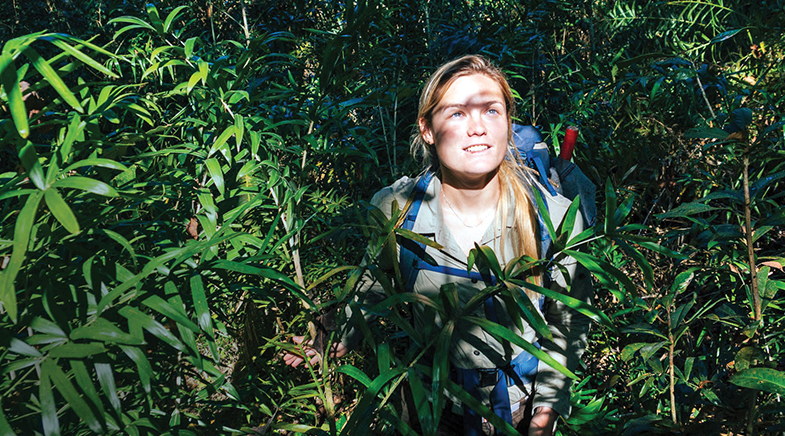Twice bitten
-
- from Shaastra :: vol 04 issue 03 :: Apr 2025

Insights into aberrant immune cells' crosstalk bolster hopes for a 'perfect' dengue vaccine.
Some 60 years ago, Lucknow-born American physician Scott Halstead made some striking observations in Thailand about the dengue virus. The then chief virologist at the U.S. Army's infectious disease laboratory in Bangkok had spotted a paradox: people infected a second time by a different subtype of the dengue virus faced a high risk of severe, life-threatening disease marked by internal bleeding, organ dysfunction, and fatal shock.
This effect, known as antibody-dependent enhancement (ADE), occurs when antibodies from a prior infection, instead of conferring protection, worsen a subsequent infection. The spectre of ADE haunts efforts to develop vaccines against dengue. The world's first dengue vaccine, introduced by the French company Sanofi in 2015 after 20 years of research and an estimated $1.7 billion in costs, faced setbacks after evidence emerged that it could worsen disease in some patients.
"ADE has been a frustrating roadblock to safe and effective dengue vaccines," says Nimesh Gupta, a scientist at the National Institute of Immunology (NII), New Delhi. "But the underlying biological mechanisms driving this phenomenon have remained a mystery."
Recent study findings could provide a thrust to dengue research on diagnostics, vaccines, and therapies.
Now, Gupta and his colleagues have discovered a subset of white blood cells, or T cells, that selectively accumulate in patients with severe dengue. Their findings suggest that these T cells drive an excessive, uncontrolled antibody response to dengue infections, leading to severe disease.
T cells are essential components of the body's immune response to microbes. Some T cells act as "helpers", nudging another group of white blood cells – called B cells – to produce antibodies against microbes. Alongside this normal process, the NII study has found a previously unknown subset of T cells in dengue that function as faulty instructors and push B cells into producing the wrong antibodies in an uncontrolled fashion. "Now we know the culprits; we need to find ways to block their actions," says Gupta.
Health experts estimate that the dengue virus – spread by the bites of the Aedes aegypti mosquito – infects over 400 million people worldwide each year. With this mosquito species expanding its geographic and seasonal footprints owing to global warming, dengue cases are expected to increase. A February 2025 study (bit.ly/climate-dengue) led by Erin Mordecai, Associate Professor of Biology at Stanford University, has estimated that dengue cases could rise by 49-76% across 21 countries in Central America and Latin America by 2050. Parts of Brazil, Bolivia, Mexico and Peru could see spikes of 150% by mid-century, the study notes. The researchers were unable to predict the climate impacts on dengue-endemic areas that have not consistently tracked infections, including large parts of sub-Saharan Africa and South Asia. Exact global dengue fatalities remain unknown, but experts have calculated estimates ranging from 5,000 to 40,000 a year, with many deaths among children. India accounts for one-third of the global dengue infections.
Progress towards dengue vaccines has been slow. Sanofi's Dengvaxia had an overall vaccine efficacy of 69%, but it poses an elevated risk of severe dengue, especially in children aged below nine years who have not had a prior dengue infection.
In 2016, Halstead, by then back in the U.S. as Emeritus Professor at the Uniformed Services University of the Health Sciences in Bethesda, Maryland, collaborated with fellow American vaccine science specialist Philip Russell to re-analyse data from Dengvaxia's clinical trials. They found that children aged five years or younger who had received three doses of Dengvaxia were five times more likely to be hospitalised for severe dengue than those who had received placebo or a sham vaccine. In a 2017 paper (bit.ly/Halstead-Dengvaxia), Halstead also flagged concerns that ADE might be contributing to severe disease and hospitalisation among Dengvaxia recipients who had not had a prior dengue infection.
Since then, other dengue vaccines have emerged: TAK-003 from the Japanese company Takeda; Butantan-DV from the Butantan Institute in Brazil; and DengiAll, a vaccine formulation from India's Panacea Biotech based on a dengue vaccine strain originally developed at the U.S. National Institutes of Health. Panacea, one of three Indian companies to receive the strain, worked on them to develop a full-fledged vaccine. TAK-003 has an overall efficacy of 80%, while Butantan-DV has been shown to prevent the development of the disease in a comparable 79.6% of those vaccinated. After promising results from safety and small-scale efficacy trials in Belagavi, Lucknow, and Pondicherry during 2018-19, Panacea initiated a large-scale efficacy evaluation trial of DengiAll in August 2024 aimed at recruiting over 10,300 participants at 19 sites across the country. However, researchers remain concerned that the current vaccines do not show balanced immunity across the four serotypes of dengue, and that immunity wanes swiftly.
These vaccines show that effective immunisation is possible in some cases, but challenges remain. "The perfect dengue vaccine is not on the immediate horizon," Stephen Thomas, an infectious disease specialist and Professor at the State University of New York Upstate Medical University, had cautioned in a research review published in the journal npj Vaccines in 2023 (go.nature.com/4bUFevi).
"Long-term follow-ups will be required on all recipients of existing vaccines to see whether some recipients might face the consequences of ADE," says Gupta, who joined the NII in 2016 after postdoctoral research in France, where he studied immune responses to the Japanese encephalitis virus – which belongs to the same family as the dengue.
The current dengue vaccines do not show balanced immunity across the four serotypes of dengue.
At the NII, Gupta began to probe a fundamental question about immune responses in dengue: how exactly do T helper cells drive B cells into making antibodies in dengue patients? While many have earlier measured B cell and T cell responses in dengue, Gupta adopted a strategy called single cell genomics to investigate these responses at unprecedented granularity.
The NII team, working with doctors at the All India Institute of Medical Sciences, New Delhi, analysed immune responses in three groups of hospitalised dengue patients: 37 patients who had no warning signs of severe disease; 116 with warning signs; and 33 who had severe dengue, with symptoms such as bleeding or organ dysfunction.
They noticed a distinct subset of T cells occurred in greater proportions in patients with severe disease – accounting for 15-25% of the dengue-related T cell responses in severe cases, compared to less than 5% in patients with non-severe dengue. In follow-up observations, the researchers documented how these T cells drive B cell behaviour into generating the antibodies that lead to overactive immune reactions. The NII-AIIMS team, along with other collaborators at the University of California San Diego, published their research results in Cell Reports in March (bit.ly/nii-aiims). The study was funded by the Department of Science & Technology and the Department of Biotechnology, both agencies under India's Ministry of Science & Technology.
The discovery could provide a pivotal thrust to dengue research on diagnostics, vaccines, and even therapies. Current vaccines are mixtures of the four serotypes of live, attenuated dengue viruses that have been weakened through laboratory procedures and, therefore, are unable to cause disease. The hope is that the immune system will recognise the appropriate protein structures – known as epitopes – on each subtype of the virus and generate the right immune response from T cells and B cells, leading to the production of the desired antibodies.

"Our results suggest that the new T cells we've identified interact with an alternative set of epitopes on the virus, leading to the production of unwanted antibodies," says Gupta. "This opens a window for rational vaccine design. The goal would be to create vaccine candidates that do not contain these trouble-making epitopes and eliminate the risk of ADE."
Beyond vaccines, the findings may also help in early diagnosis. Medical studies suggest that only 1-5% of dengue patients develop severe disease. Gupta believes that the T cells could serve as diagnostic markers to identify high-risk patients.
"With a diagnostic test, we could pre-emptively recommend hospitalisation for closer monitoring," says Rahul Pandit, Chair of Critical Care at the Sir H.N. Reliance Foundation Hospital in Mumbai. "But this is still a lab-stage discovery, yet to translate into clinical applications."
None of the known antiviral medications are effective against dengue. Current treatment involves supportive therapy with medicines for fever or pain, while waiting for the immune system to beat the virus. Patients who show warning signs – persistent vomiting, abdominal pain, or bleeding from the nose or gums – are admitted to hospital and monitored for fluid balance management. Those who advance to severe dengue may require organ support in intensive care units.
"The fresh insights into the crosstalk between B cells and T cells from the NII work could spur research towards novel therapies to block the ADE process," says Anirban Basu, a scientist at the National Brain Research Centre, Manesar (Haryana). "The discovery looks promising, but it will need to be validated with larger samples of patients. And it will also be crucial to determine whether this T cell subset driving the ADE mechanism occurs with all four subtypes of dengue."
In his 2023 review, Thomas had outlined criteria for a perfect dengue vaccine: it must protect against all four serotypes, prevent all forms of the disease – not just severe cases – and work regardless of prior dengue infection. That challenge still lies ahead.
G.S. Mudur is a science journalist.
See also:
Have a
story idea?
Tell us.
Do you have a recent research paper or an idea for a science/technology-themed article that you'd like to tell us about?
GET IN TOUCH














